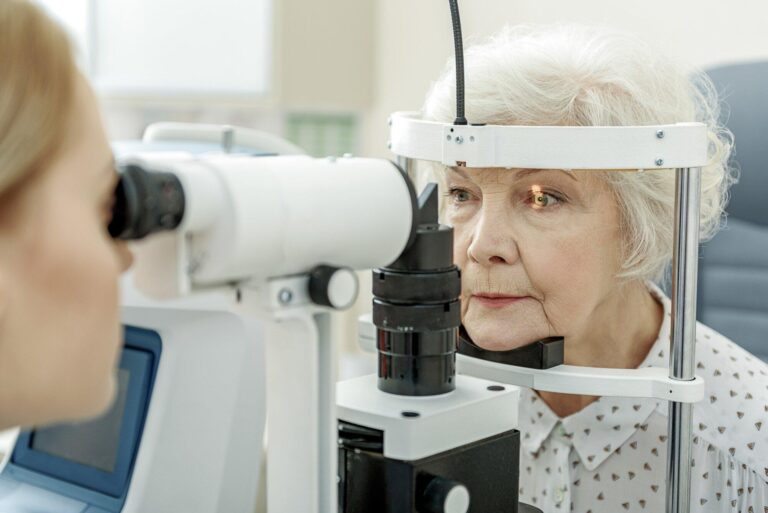Tossing and Turning? Try CBD Oil for Better Sleep Quality
Tossing and turning, night after night… If only getting a good night’s sleep was as easy as counting sheep! We’ve all been there – the frustration of staring at the ceiling, unable to drift off into dreamland. But what if there was a natural solution to help you achieve those elusive Zzzs? Enter CBD oil, the latest buzz in the world of sleep aids. In this blog post, we’ll explore how CBD can potentially improve your sleep quality and provide some much-needed rest. So grab your favorite blanket, settle in, and let’s dive into the fascinating world of CBD and sleep!
Understanding CBD and Sleep
What is CBD? It stands for cannabidiol, a compound derived from the cannabis plant. But before you jump to any conclusions, let’s clear something up – CBD won’t get you high. Unlike its better-known cousin, THC, CBD doesn’t have psychoactive effects. Instead, it interacts with receptors in your body’s endocannabinoid system (ECS), which plays a role in regulating various functions, including sleep.
So how does CBD affect sleep? Research suggests that CBD may help address some of the underlying causes of poor sleep quality. For instance, studies indicate that CBD may reduce anxiety and stress levels, both of which can contribute to insomnia or difficulty falling asleep. Additionally, CBD has been found to have calming properties that promote relaxation and a sense of tranquility – just what you need to drift off into dreamland effortlessly.
What is CBD?
CBD, short for cannabidiol, is a natural compound found in the cannabis plant. Unlike its cousin THC (tetrahydrocannabinol), CBD does not produce any psychoactive effects or the feeling of being “high.” Instead, it offers a range of potential health benefits. CBD can be extracted from both hemp and marijuana plants.
When consumed, CBD interacts with our body’s endocannabinoid system (ECS), which plays a crucial role in regulating various bodily functions, including sleep. It helps to restore balance and promote overall well-being. Research suggests that CBD may have calming effects on the mind and body, making it an appealing option for those struggling with sleep issues.
Whether you’re experiencing occasional sleep disturbances or chronic insomnia, incorporating CBD into your bedtime routine could potentially help improve your sleep quality by promoting relaxation and reducing anxiety. However, it’s important to note that more research is needed to fully understand how CBD affects sleep patterns and whether it can serve as an effective long-term solution for insomnia or other sleep disorders.
How does CBD affect sleep?
CBD, short for cannabidiol, is a compound found in the cannabis plant. When it comes to sleep, CBD has been gaining attention for its potential benefits. So how does CBD affect sleep?
CBD interacts with our body’s endocannabinoid system (ECS), which plays a role in regulating various functions including sleep. It is believed that CBD helps balance and regulate the ECS, promoting better sleep quality. CBD may have anxiolytic properties, meaning it can help reduce anxiety and promote relaxation – two factors that are crucial for a good night’s rest.
While more research is needed to fully understand how CBD affects sleep, many users report experiencing improvements in their sleep patterns after incorporating CBD into their routine. Whether you struggle with falling asleep or staying asleep throughout the night, trying out CBD oil may provide some relief and aid in achieving a peaceful slumber.
The benefits of CBD for sleep
CBD has gained popularity for its potential benefits in improving sleep quality. Many people who struggle with insomnia or other sleep disorders have found relief through the use of CBD oil. One of the main benefits of CBD for sleep is its ability to promote relaxation and reduce anxiety, which can greatly impact one’s ability to fall asleep and stay asleep throughout the night.
Additionally, CBD has been shown to have anti-inflammatory properties, which can help alleviate pain that may be causing difficulty sleeping. By reducing inflammation and soothing discomfort, CBD oil can contribute to a more restful night’s sleep. Incorporating CBD into your bedtime routine may provide you with a natural solution for achieving better sleep quality without relying on prescription medications or over-the-counter remedies.
Is CBD Safe for Sleep Aid?
When it comes to using CBD for sleep, one common question that arises is whether or not it is safe. Let’s take a closer look at the safety of CBD as a sleep aid.
First and foremost, it’s important to note that the FDA has only approved one prescription medication containing CBD for the treatment of seizures associated with two rare forms of epilepsy. While this means that there is limited official guidance on using CBD for other conditions, including sleep disorders, many people still find relief from their sleep issues by incorporating CBD into their routine.
It’s also worth considering potential risks and side effects associated with CBD use. Some individuals may experience mild side effects such as drowsiness, dry mouth, or changes in appetite. Additionally, there have been reports of interactions between certain medications and CBD. As always, it’s essential to consult with your doctor before starting any new supplement or making changes to your current medication regimen to ensure your safety and well-being when using CBD for sleep support.
FDA approval and regulations
The use of CBD oil for sleep has been gaining popularity, but what about its safety? Well, when it comes to FDA approval and regulations, things get a little tricky. Currently, the FDA has only approved one prescription drug that contains CBD for the treatment of epilepsy. This means that other CBD products on the market are not officially regulated or approved by the FDA.
However, this doesn’t necessarily mean that all CBD products are unsafe. Many reputable manufacturers follow strict quality control measures to ensure their products are safe and accurately labeled. It’s important to do your research and choose a trusted brand before purchasing any CBD product. As always, consulting with your doctor is essential to determine if using CBD oil as a sleep aid is right for you.
Potential risks and side effects
CBD oil is generally considered safe for consumption, but as with any supplement or medication, there may be potential risks and side effects to be aware of. It’s important to note that these effects can vary from person to person.
One possible risk is the interaction between CBD and certain medications. CBD has been found to inhibit enzymes in the liver responsible for metabolizing drugs, which could potentially lead to higher levels of those drugs in the bloodstream. This means that if you’re taking any prescription medications, it’s crucial to consult with your doctor before incorporating CBD oil into your routine.
Another potential side effect of CBD oil is drowsiness or sedation. While this can be beneficial for those struggling with insomnia, it may not be ideal for individuals who need to stay alert during the day. Additionally, some people may experience changes in appetite or weight as a result of using CBD oil.
Understanding these potential risks and side effects allows you to make an informed decision about whether or not CBD oil is right for you. Consulting with a healthcare professional will help ensure that any potential interactions are taken into account and that you can use CBD safely and effectively.
How to Use CBD Oil for Sleep
Using CBD oil for sleep can be a game changer when it comes to getting a good night’s rest. But how exactly should you use it? Well, the recommended dosage of CBD for sleep varies depending on factors like your body weight and individual needs. It’s always best to start with a low dose and gradually increase it until you find the right amount that works for you.
CBD oil comes in different forms, including tinctures, capsules, and even gummies. Tinctures are the most common form and are typically taken by placing a few drops under your tongue. This allows for quick absorption into your bloodstream. Alternatively, capsules offer convenience as they can be easily swallowed with water. And if you prefer something more enjoyable, CBD gummies provide a tasty option that can also help promote better sleep.
Everyone is different! Experimenting with different forms and dosages will help you find what works best for your specific sleep needs. So don’t hesitate to try out different methods until you discover the perfect routine that helps you drift off into dreamland effortlessly.
Recommended dosage of CBD for sleep
When it comes to using CBD for sleep, finding the right dosage is crucial. While there is no one-size-fits-all approach, there are general guidelines to help you get started. It’s important to note that individual responses may vary, so it’s always best to start with a low dose and gradually increase until you find what works for you.
A common starting point is 25mg of CBD oil taken orally about an hour before bedtime. If needed, this can be increased by 5-10mg every few days until desired results are achieved. Experimenting with different dosages will allow you to find your optimal sweet spot for improved sleep quality without any unwanted side effects. Finding the right balance may require some trial and error, but the benefits can be well worth it in the end!
Different forms of CBD oil
CBD oil is available in a variety of forms, making it easy for individuals to find the option that works best for their needs. One popular form is CBD tinctures, which are taken orally by placing drops under the tongue. These tinctures are convenient and provide fast-acting effects.
Another form of CBD oil is capsules or softgels, which offer a precise dosage and can be easily incorporated into your daily routine. They are discreet and travel-friendly, making them a great option for those on the go.
Other options include CBD topicals such as creams or lotions, which can be applied directly to specific areas of the body for localized relief. Additionally, there are also CBD edibles like gummies or chocolates that provide a tasty way to consume CBD. With so many different forms available, individuals have the flexibility to choose what works best for their preferences and lifestyle when incorporating CBD oil into their sleep routine.
CBD for Specific Sleep Disorders
CBD has shown promise in helping individuals with various sleep disorders. For those struggling with insomnia, CBD may offer relief by promoting relaxation and reducing anxiety levels. By calming the mind and body, it can help improve overall sleep quality.
Moreover, CBD may also be beneficial for individuals dealing with circadian rhythm disorders or jet lag. These conditions disrupt the normal sleep-wake cycle, making it difficult to fall asleep or stay asleep at the desired times. CBD’s potential ability to regulate this internal clock could aid in resetting and improving sleep patterns.
Additionally, CBD might assist people experiencing anxiety-related sleep disorders such as nightmares or night terrors. Its anxiolytic properties can potentially reduce fear and induce a sense of calmness before bedtime.
Furthermore, research suggests that CBD may be helpful for relieving symptoms associated with restless leg syndrome (RLS). RLS causes uncomfortable sensations in the legs that lead to an irresistible urge to move them while resting or sleeping. By alleviating these symptoms, CBD can contribute to more restful nights.
Chronic pain often interferes with proper sleep and restfulness. CBD’s analgesic properties make it a potential option for managing pain-related sleep issues by reducing discomfort and promoting relaxation.
CBD for insomnia
Insomnia, the inability to fall asleep or stay asleep, can wreak havoc on our daily lives. Counting sheep just won’t cut it anymore! But fear not, because CBD might just be the sleep solution you’ve been searching for.
CBD has shown promising results in helping individuals with insomnia achieve a more restful night’s sleep. By interacting with receptors in the endocannabinoid system (ECS), CBD promotes relaxation and reduces anxiety – two key factors that often contribute to insomnia. So instead of tossing and turning all night long, consider giving CBD oil a try for some much-needed shut-eye.
Before incorporating CBD into your bedtime routine, it’s always best to consult with your doctor to ensure it is safe for you and determine the appropriate dosage.
CBD for circadian rhythm disorders
If you struggle with circadian rhythm disorders, CBD oil may offer some relief. Circadian rhythm disorders can disrupt your sleep-wake cycle and leave you feeling exhausted during the day. But how exactly can CBD help?
CBD has been found to interact with our body’s endocannabinoid system, which plays a key role in regulating our sleep patterns. By interacting with receptors in the brain and nervous system, CBD can help restore balance to our circadian rhythms.
In addition to its potential impact on sleep-wake cycles, studies have suggested that CBD may also have anxiolytic properties, helping to reduce anxiety and promote relaxation. This can be particularly beneficial for those who experience heightened anxiety at night, making it difficult to fall asleep or stay asleep throughout the night. So if you’re struggling with circadian rhythm disorders, incorporating CBD oil into your bedtime routine could potentially improve your sleep quality and overall well-being.
CBD for anxiety-related sleep disorders
If you struggle with anxiety-related sleep disorders, CBD oil might just be the solution you’ve been looking for. Anxiety can make it incredibly difficult to fall asleep and stay asleep throughout the night. But CBD has shown promise in reducing anxiety symptoms and promoting a sense of calm, which can lead to better sleep quality.
Using CBD oil for anxiety-related sleep disorders is a natural approach that many people are turning to. By interacting with receptors in the brain that regulate mood and stress response, CBD may help alleviate anxious thoughts and promote relaxation before bedtime. This can result in a more restful night’s sleep without the constant tossing and turning caused by racing thoughts or worry.
CBD for restless leg syndrome
Restless leg syndrome (RLS) can be a frustrating and uncomfortable condition that affects sleep quality. The constant urge to move your legs can make it difficult to relax and fall asleep at night. But did you know that CBD oil may offer some relief?
Research suggests that CBD’s calming properties may help reduce the symptoms of RLS, allowing individuals to experience better sleep. By interacting with the body’s endocannabinoid system, CBD can help regulate movement and provide a sense of relaxation. Many people have reported improved sleep quality after incorporating CBD oil into their nighttime routine.
If you struggle with restless leg syndrome, consider trying CBD oil as a natural remedy. However, it’s important to consult with your doctor first to determine the appropriate dosage and ensure there are no potential interactions with any medications you may be taking. With its potential benefits for sleep disorders like RLS, CBD could be just what you need for a more restful night’s sleep.
CBD for chronic pain and related sleep issues
Chronic pain can be a major hindrance to getting a good night’s sleep. Whether it’s due to arthritis, fibromyalgia, or other conditions, the constant discomfort can make falling asleep and staying asleep nearly impossible. This is where CBD oil may come in handy.
CBD has been shown to have analgesic properties, meaning it can help reduce pain levels. By interacting with receptors in the body’s endocannabinoid system, CBD may help alleviate chronic pain and inflammation. When pain levels are reduced, it becomes easier for individuals to relax and fall into a deep sleep.
In addition to its potential analgesic effects, CBD also has calming properties that can promote relaxation and reduce anxiety levels. This is particularly beneficial for those whose chronic pain keeps them awake at night due to worry or stress. By taking CBD oil before bed, individuals may experience both relief from their physical discomfort as well as mental relaxation necessary for restful sleep.
Though that everyone responds differently to CBD oil, so finding the right dosage and form of ingestion might take some trial and error.
Consult Your Doctor before Using CBD Oil
When considering using CBD oil for sleep, it is important to consult your doctor before starting any new supplement or medication. Your doctor can provide personalized guidance based on your specific health needs and any potential interactions with other medications you may be taking.
By discussing CBD oil with your doctor, you can ensure that it is safe for you to use and determine the appropriate dosage. They can also help monitor your progress and adjust the treatment plan if needed. Remember, open communication with your healthcare provider is key to maximizing the benefits of CBD oil for better sleep quality.
Talking to your doctor about CBD usage
Talking to your doctor about CBD usage is an important step before incorporating it into your sleep routine. Your doctor can provide valuable insight and guidance based on your specific needs and health conditions. They can help determine the appropriate dosage of CBD for you, taking into account factors such as body weight, metabolism, and any medications you may be currently taking.
Additionally, discussing CBD with your doctor allows them to assess any potential drug interactions that could occur. This is especially crucial if you are already on medication for other health issues. By having an open conversation with your healthcare provider. You can ensure that CBD is safe and suitable for improving your sleep quality without compromising your overall well-being.
Potential drug interactions
When considering using CBD oil for sleep, it’s important to be aware of potential drug interactions. CBD can interact with certain medications, affecting their effectiveness or causing unwanted side effects. It is crucial to consult with a healthcare professional before incorporating CBD into your sleep routine.
CBD may interact with medications metabolized by the liver enzymes known as cytochrome P450. These enzymes are responsible for breaking down many common prescription and over-the-counter drugs. By inhibiting these enzymes, CBD can potentially increase or decrease the levels of other substances in your bloodstream, altering how they work in your body. This interaction could lead to adverse effects or reduce the efficacy of medication you’re currently taking.
It’s always better to err on the side of caution and seek advice from a healthcare provider who is familiar with both your medical history and any current medications you’re taking. They will be able to provide personalized guidance regarding whether or not CBD oil is safe for you and if any adjustments need to be made in terms of dosage or timing when combining it with other medications.
Conclusion: Improve Your Sleep Quality with CBD Oil
If you’re tired of tossing and turning at night, it’s time to consider incorporating CBD oil into your sleep routine. CBD, or cannabidiol, has shown promising results in improving sleep quality and addressing various sleep disorders. With its natural properties and minimal side effects, this plant-based remedy is becoming an increasingly popular choice for those seeking a restful night’s sleep.
CBD works by interacting with the body’s endocannabinoid system, which plays a crucial role in regulating sleep patterns. It helps promote relaxation and reduce anxiety levels, allowing you to drift off into a deep slumber more easily. Additionally, CBD can alleviate pain and discomfort that may be keeping you awake at night.
Before adding CBD oil to your nighttime routine, it’s important to consult with your doctor first. They can provide personalized advice based on your specific needs and any potential drug interactions that may arise. Once you have the green light from your healthcare provider, there are several ways to incorporate CBD into your bedtime routine.
When using CBD oil for better sleep quality, it’s recommended to start with a low dosage and gradually increase as needed until you achieve the desired effects. This will help ensure that you find the right amount for optimal results without experiencing any adverse reactions.
CBD oil comes in various forms such as tinctures or capsules. Tinctures are taken orally by placing drops under the tongue for quick absorption into the bloodstream. Capsules provide a convenient option for those who prefer precise dosing without any taste or texture concerns.
Whether you struggle with insomnia, circadian rhythm disorders like jet lag or shift work disorder, anxiety-related sleep issues or restless leg syndrome. CBD oil may offer relief from these conditions naturally.







